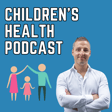
Autism: What are the best value-for-money lab tests for my autistic child?
Children's health consulting (autism, ADHD, gut dysfunction etc.): https://christianyordanov.com/childrens-health-consulting/
Get my book Autism Wellbeing Plan: How to Get Your Child Healthy: https://amzn.to/43ah6yD
My new book, How to Actually Live Longer, Vol.1: https://amzn.to/3OnZJGl
Christian Yordanov is a health author and Functional Diagnostic Nutrition practitioner. He has worked with clients with severe gastrointestinal ailments, toxicity, and debilitating chronic fatigue. He has helped people with autoimmune and neurological conditions, skin disorders, hypothyroidism, insomnia, depression, autism, obesity, and other metabolic problems.
His latest book, How to Actually Live Longer, Vol. 1, is the first in his series on slowing the ageing process and increasing longevity. He is also author of the book Autism Wellbeing Plan: How to Get Your Child Healthy — a comprehensive resource for parents to understand the most common health problems from which autistic children suffer, and how to address them.
In his clinical work, Christian uses functional lab testing to identify hidden metabolic and health imbalances, and teaches clients how to use diet, supplementation, detoxification, stress reduction, sleep optimisation, and other strategies to address their chronic health issues and transform their lives for the better.
